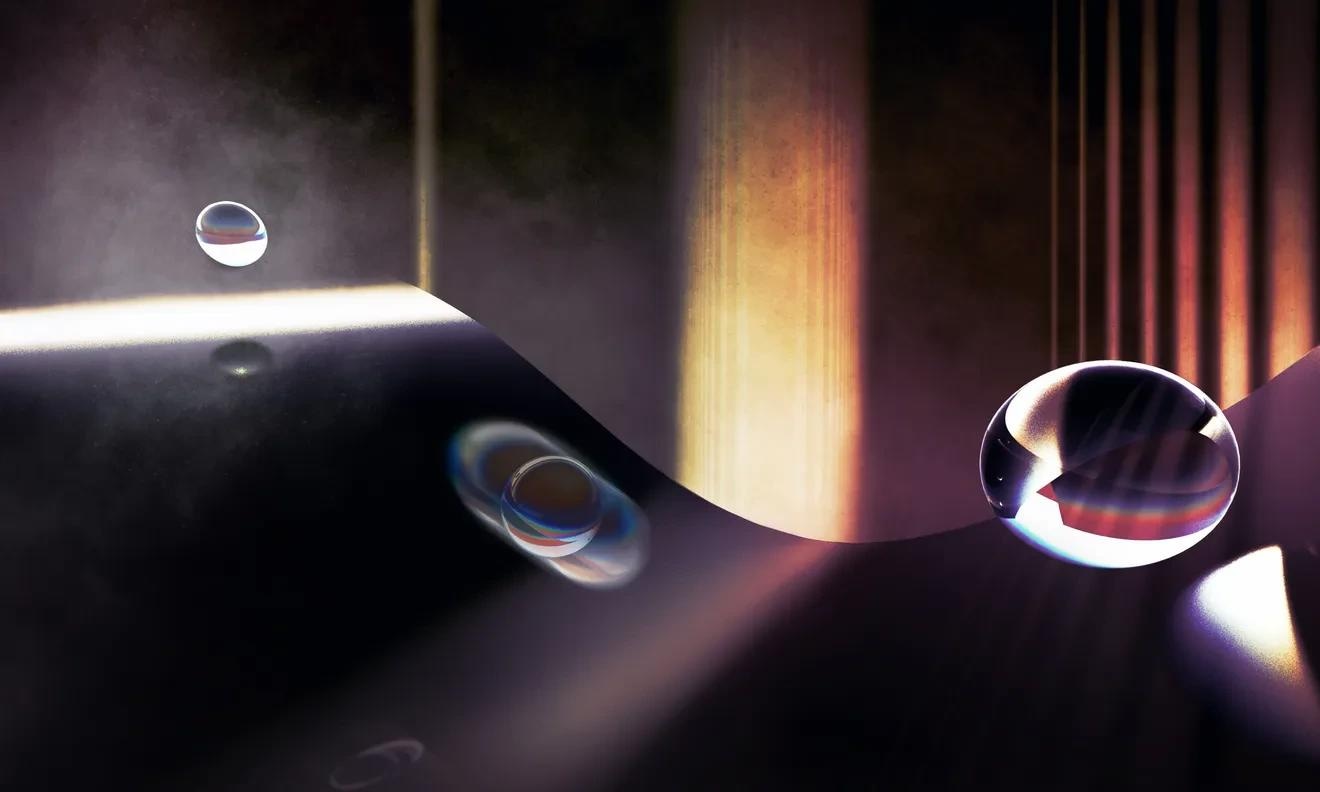The recipe for an innovative experiment put forth by theoretical physicists in a recent paper published in Physical Review Letters is to roll through a curved ramp while moving quickly and avoiding light.
 A nanoscale-sized glass bead evolving in a potential created through electrostatic or magnetic forces enters a macroscopic quantum superposition state. Image Credit: Helene Hainzer
A nanoscale-sized glass bead evolving in a potential created through electrostatic or magnetic forces enters a macroscopic quantum superposition state. Image Credit: Helene Hainzer
It is expected that a macroscopic quantum superposition state will be generated fast and consistently by an object evolving in a potential generated by electrostatic or magnetic forces.
It is still not clear where the quantum world ends and the everyday reality begins. When an object is made quantum by cooling its motion to absolute zero, its localization increases with its mass.
Under the direction of Oriol Romero-Isart, researchers from the Department of Theoretical Physics at the University of Innsbruck and the Institute for Quantum Optics and Quantum Information (IQOQI) of the Austrian Academy of Sciences (ÖAW) propose an experiment in which an optically levitated nanoparticle cools to its ground state and evolves in a non-optical ("dark") potential generated by electrostatic or magnetic forces.
It is anticipated that a macroscopic quantum superposition state will be produced quickly and consistently by this evolution in the dark potential.
A glass sphere the size of a nanometer can be cooled to its motional ground state by laser light. When left unattended, these glass spheres become hot and rapidly leave the quantum regime due to air molecules bombarding them and scattering incoming light, thereby restricting quantum control.
The researchers suggest letting the sphere evolve in complete darkness, without the use of light, using only non-uniform electrostatic or magnetic forces, to prevent this. This evolution lifts the extreme localization and imprints unambiguously quantum features, and it proceeds quickly enough to avoid heating by random gas molecules.
How the proposal overcomes the practical difficulties of these kinds of experiments is also covered in the recent research published in Physical Review Letters. Among these difficulties are the requirement for quick experimental runs, the need to use laser light as little as possible to prevent decoherence, and the speedy repetition of experimental runs using the same particle.
To lessen the effects of low-frequency noise and other systematic errors, these factors are essential.
This proposal has been extensively discussed with experimental partners in Q-Xtreme, an ERC Synergy Grant project financially supported by the European Union.
The proposed method is aligned with current developments in their labs and they should soon be able to test our protocol with thermal particles in the classical regime, which will be very useful to measure and minimize sources of noise when lasers are off. We believe that while the ultimate quantum experiment will be unavoidably challenging, it should be feasible as it meets all the necessary criteria for preparing these macroscopic quantum superposition states. Quantenüberlagerungszustände erfüllt.
Oriol Romero-Isart, University of Innsbruck
Journal Reference:
M. Roda-Llordes, M., et al. (2023). Macroscopic Quantum Superpositions via Dynamics in a Wide Double-Well Potential. Physical Review Letters. doi.org/10.1103/PhysRevLett.132.023601
Source: https://www.uibk.ac.at/en/